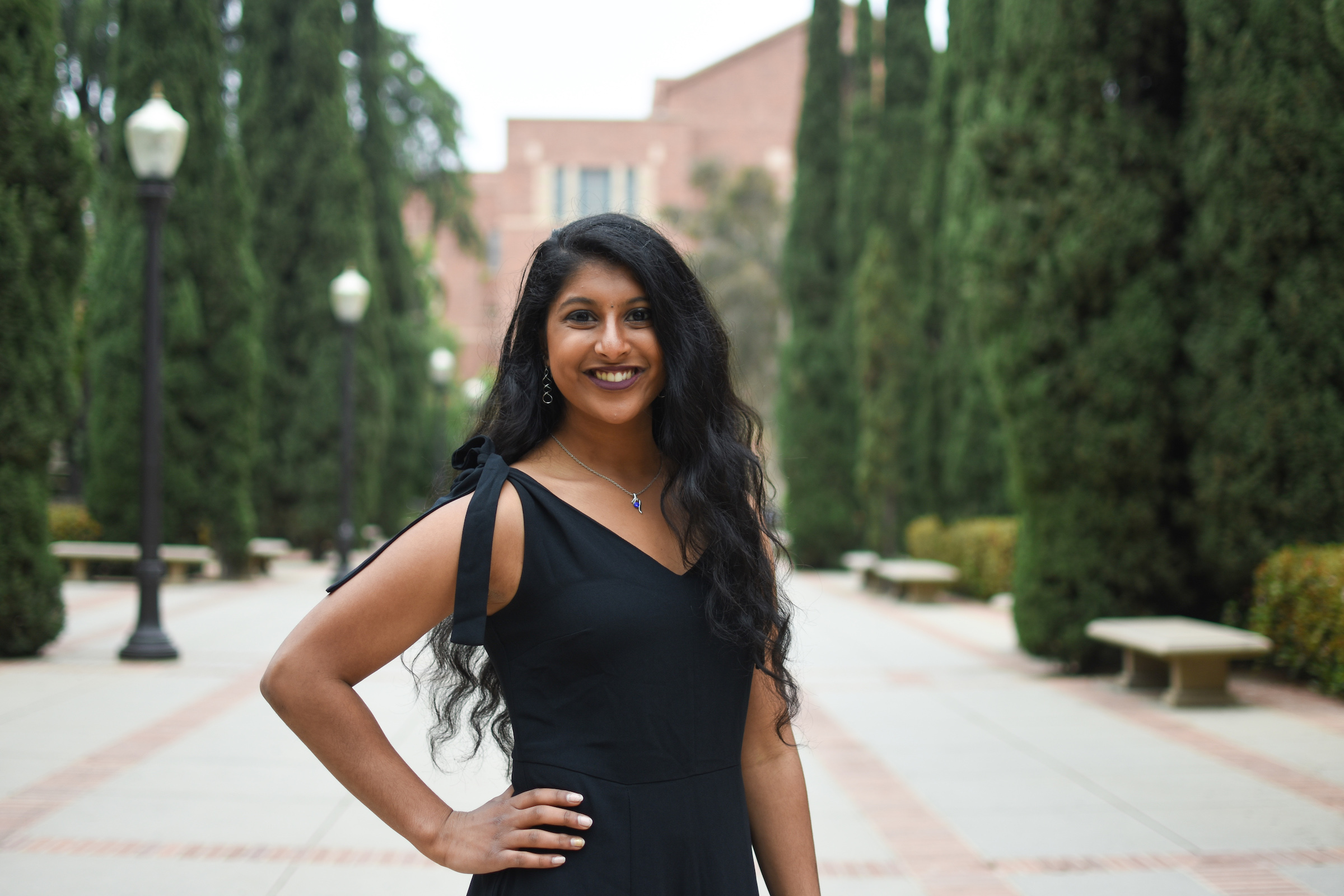Featured UCLA Feminist: Shruti Indiresan

For third-year biochemistry student Shruti Indiresan, the big picture of feminism means the “recognition and respect for basic human rights.” But, most importantly for Shruti, feminism means intersectionality: “recognizing that our obstacles are a complex of our many identities, and coming up with workable solutions to address these layers of oppression.”
The road to feminism for many people begins at a moment of injustice or a realization that acts as a lightning bolt, jolting them out of their ignorance. But for others like Shruti, there was no lightning bolt moment. Instead, her road to feminism came from the small moments of adolescence. “As a young child, before I even know the term for it, I realized that children’s stories, toys, and even our favorite subjects were unnecessarily gendered. I wondered why boys couldn’t like pink, why princes always saved the princesses, and why I couldn’t say I liked math better than reading.”
As she grew up, Shruti became more and more aware of how gender played an arbitrary role in her and other women’s lives. However, instead of deterring her, Shruti grew stronger in her resolve: “As I have become more socially and politically aware, observing the baseless slander and discrimination women face in the workplace, the media, and the political landscape has reminded me how crucial it is to fight for women’s rights and never, ever doubt for a second that we deserve equality.”
When asked how she expresses her feminism, Shruti is firm in her view that political discourse is critical: “I try my best to stay politically aware, vote and encourage others to vote, as the bottom line is civic participation to exact change in our discourse. I make sure to lift other women up, not tear them down.”
But above all, Shruti keeps herself humble in her expression of feminism, insisting she is “a work in progress” like everybody else and is “always willing to learn.”
Like other college students, Shruti enjoys a good sticker emblazoned on a laptop as a form of self-expression. One of her favorite stickers consists of one word: “steminist.” When asked about the meaning behind it, she passionately explained that “aside from the fact that women, particularly those from marginalized backgrounds, are underrepresented and systemically discriminated against in STEM education and careers, it also serves as a reminder of the importance to consider women in the study of STEM.” For example, Shruti points out how for years, the study of women’s bodies in healthcare existed as an extension of the male body, which resulted in the lack of quality healthcare for women. In addition, she considers it a tribute to her female STEM idols, including her mom, professors, TAs, lab mentors, classmates, Rosalind Franklin, Katherine Johnson, and Maryam Mirzakhani, just to name a few.
As Shruti envisions the future, she sees feminism as the inevitable way toward equality. “Being a feminist should be the standard everyone should strive to. I already see that words like ‘intersectional’ and ‘feminist’ are slowly but surely losing their stigma and becoming labels of power.” Ultimately, she believes intersectional feminism is the only forward: “In the future, I believe that most people, if not everyone, will proudly abide by the basic ideology that all people deserve equal rights, opportunity and representation in all facets of life. I see intersectional feminism being used as a basis to address a broad range of issues – healthcare, immigrant and refugee rights, economic issues…because they are all connected.”




